Qantas, CBA, Woolworths, Coles ‘excess’ profits driving cost of living crisis
Australia’s best-known companies have reported billions in profits recently, with the brutal truth that their excessive price rises are “crushing” people.
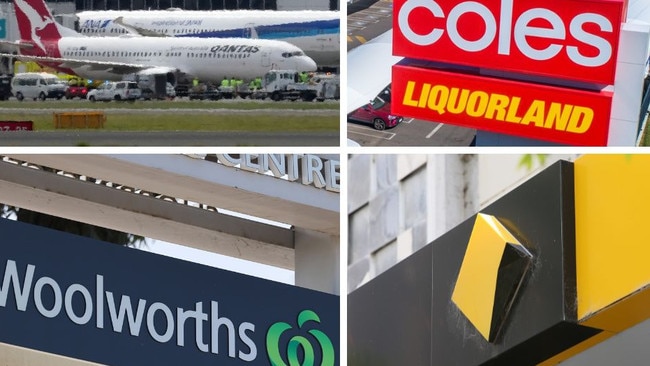
Companies
Don't miss out on the headlines from Companies. Followed categories will be added to My News.
Excessive corporate profits – and not Australian wages – are behind the skyrocketing cost of living, new analysis has revealed, with one union slamming big businesses for creating a “greed price spiral”.
The brutal analysis from the Australian Institute has shown that inflation would have stayed within the Reserve Bank of Australia’s (RBA) target if companies had not squeezed consumers through the pandemic via excess price hikes.
The “dramatic expansion” of business profits has gone mostly ignored by the RBA which has instead focused on a supposed wage-price spiral that does not exist, Dr Jim Stanford from the Australian Institute claims.
The RBA’s obsession with wage restraint – essentially urging Australians to cop a pay decrease – is “misplaced and unfair” and interest rates would be far lower if companies had not “gouged customers” at the checkout, its analysis showed.
The findings came in the same week Qantas announced a $1.4 billion profit, supermarket giant Woolworths revealed a $907 million profit – up by 14 per cent – and fellow grocery juggernaut Coles revealed a $643 million profit, which grew by 17.1 per cent.
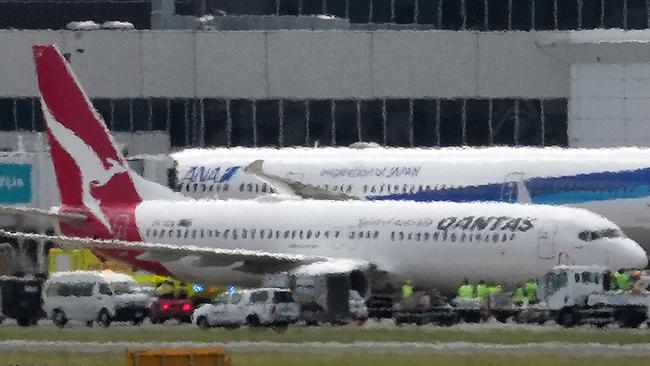
It also came hot on the heels of the Commonwealth Bank’s recently reported record $5.15 billion in profit – up by 9 per cent.
ACTU Secretary Sally McManus said what was occurring was a “greed-price spiral”.
“Qantas has joined Coles and Woolworths, as well as the Commonwealth Bank, in posting eye-watering profits. Inflation is being fed by these companies putting up prices far more than they need to,” she said.
“Wage growth is clearly not contributing to inflation. Any wage rises in 2022 and early 2023 have been eaten up by price rises and interest rate rises.
“Real wages are going backwards, a shocking 4.5 per cent. More needs to be done to get wages moving.”
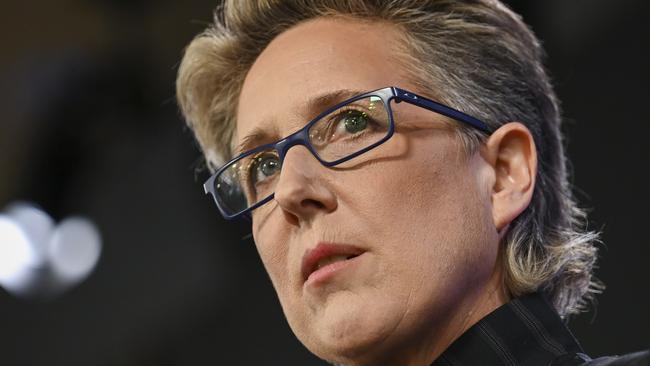
Australian businesses increased prices by a total of $160 billion per year which was far more than necessary to cover rising expenses for labour, taxes and supply chain issues, the Australian Institute found.
Without the excess profits, inflation since the pandemic would have been much slower – at an annual average of 2.7 per cent per year, barely half of the 5.2 per cent actually recorded since the end of 2019.
This means the RBA would not have been forced to implement an aggressive cycle of nine consecutive interest rates as inflation would have been contained, the analysis showed, but now many Australian homeowners are experiencing extreme stress from rising mortgage costs.

The fact excess corporate profit was the main driver behind the soaring cost of living would be “aggravating” for Aussies who are doing it “tough”, said Dr Jim Stanford from the Australia Institute’s Centre for Future Work.
“We’ve been told a story that workers need to restrict wage growth and accept a permanent reduction in living standards in order to fix inflation. This evidence shows that’s an economic fairytale,” he said.
“ABS data shows that without excess price hikes through the pandemic, inflation would likely be within the RBA target band, and hence there would be no need for the nine extreme, back-to-back interest rate rises that are crushing households and mortgage holders, fuelling the cost-of-living crisis.”
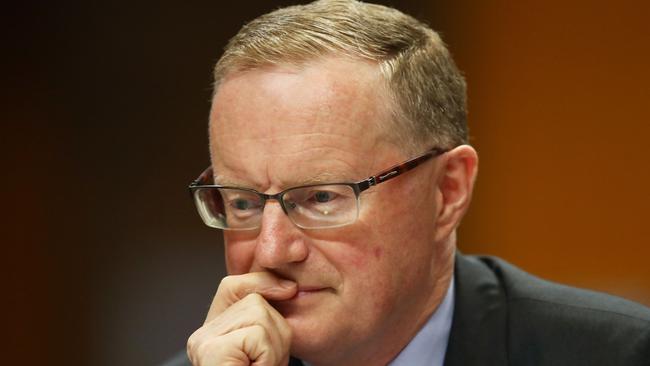
Real wages also fell in Australia by 4.5 per cent in 2022 – the largest fall on record, the Australian Institute also found.
“The pain experienced by workers through current inflation contrasts sharply with unprecedented increases in business profitability at the same time,” Dr Stanford said.
“Through this episode of post-Covid inflation, real wages have declined rapidly, labour’s share of GDP has declined, and corporate profits have set records. That is completely opposite from the experience of the 1970s, when real wages rose, labour’s share of GDP increased, and corporate profit margins fell.
“History confirms that fears of a 1970s-style ‘wage price spiral’ are simply not justified or grounded. Instead, inflation in Australia since the pandemic clearly reflects a profit-price dynamic.”

The ACTU called on big companies to drop their prices and moderate their unreasonable profit expectations.
“Workers are going backwards. Supermarkets and big business are putting prices up more than they need to, and workers are feeling the pain,” said Ms McManus.
“The people getting the best pay increases are union members. Last year, union members took home on average $312 a week more than non-union members.
“Big companies know people have no choice other than to pay the prices they set for essentials such as groceries and energy, and business is making record profits and driving up inflation.”
Aussies have been scorched by high inflation in the last year. Globally, inflation is the highest it has been in 30 years and that means everything is expensive, from groceries to petrol and rent.
A poll conducted by the ACTU found 24 per cent of Australians had been skipping meals due to the cost of living crisis and 56 per cent had cut back on essential items, while 21 per cent had sold assets.
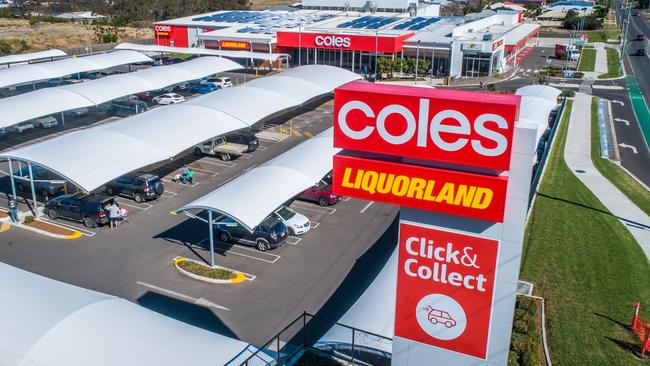
Yet, there appears to be little relief in sight for consumers.
The cost of supermarket essentials will soon jump even higher, with the world’s biggest food company confirming more price hikes were on the horizon in 2023 as inflation soars globally.
Nestlé CEO Mark Schneider revealed greater price increases were coming this year for some of its 2000 brands, despite the company boosting prices by 8.2 per cent in 2022.
Fellow major brands including Unilever, Coca-Cola, Heineken, Colgate, Palmolive and Procter & Gamble also all recently confirmed price hikes were looming as labour, energy and commodity costs skyrocket across the world.
The latest Consumer Price Index (CPI) data from the Australian Bureau of Statistics released late last year confirmed CPI rose 8.4 per cent year-on-year.
There was also a sequential increase in food inflation – rising to 9.2 per cent in the December 2022 quarter vs the previous year.
Overall, in food there were 15 categories of 26 that posted double-digit rates of inflation. Across staple food items there was also record levels of inflation in milk, bread and snacks and confectionery.
In February, the average Aussie household spent $185 per week on groceries, compared to $148 per week just 12 months prior, Finder research showed.
Originally published as Qantas, CBA, Woolworths, Coles ‘excess’ profits driving cost of living crisis





